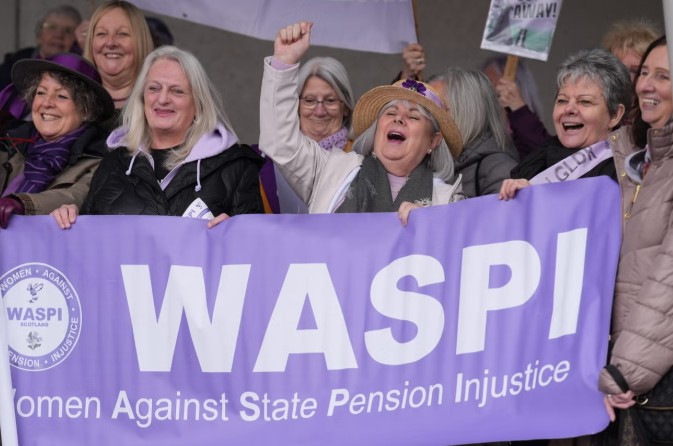Millions of women born in the 1950s, known as the Waspi women, have been given a fresh launch as the UK government has vindicated that it will review its decision to deny them compensation over the controversial state pension age changes.
The Women Against State Pension Inequality (Waspi) campaign has been fighting since 2015, claiming that around 3.6 million women were unfairly impacted when the Department for Work and Pensions (DWP) increased the state pension age from 60 to 65, and later to 66.
Numerous say they weren’t duly informed about these changes, leaving them thousands of pounds out of funds and forcing some to work longer than planned or struggle financially.
Government Reopens Decision Ahead of Legal Challenge
The announcement comes just weeks before a major High Court hearing, in which the Waspi group was set to challenge the government’s refusal to offer compensation.
Now, ministers say new evidence has surfaced, information that was not available to the former work and pensions secretary, Liz Kendall, when the original decision was made.
Work and Pensions Secretary Pat McFadden told MPs on Tuesday that the government would “re-take” the decision to deny payouts. He explained that ministers will now review all the previously considered information along with this new evidence.
However, he warned that this does not mean financial redress is guaranteed, saying: “Retaking this decision should not be taken as an indication that the government will necessarily decide that it should award financial redress.”
Background to the Waspi Pension Row
For decades, the state pension age for women was 60. The 1995 Pensions Act set out plans to equalise the withdrawal age between men and women, but it was the 2011 reforms under the coalition government that sped up this process. By 2020, the state pension age had reached 66 for both men and women.
Contenders argue that the changes weren’t communicated properly, leaving millions of women born in the 1950s ignorant that they would have to stay several more years for their pension.
Many had formerly left work or made withdrawal plans based on the former pension age, only to discover the changes too late.
The Administrative and Health Service Ombudsman (PHSO) set up the DWP shamefaced of maladministration, stating that affected women should receive compensation.
The PHSO recommended payments ranging between£ 1,000 and£ 2,950 per person, with the total cost estimated at over to£ 10.5 billion.
Still, in December last time, the government rejected the idea of compensation. Also, Chancellor Rachel Reeves defended the decision, saying the precedence was perfecting public services rather than spending billions on payouts.
Campaigners Call for Justice and Fairness
The Waspi campaign, which has gathered widespread support across the UK, insists that justice must now be served. Angela Madden, chair of the group, welcomed the government’s latest move, calling it “a major step forward.”
She said the group is seeking legal advice to understand how this affects their upcoming judicial review.
“Many women’s lives have been thrown into chaos by the way these changes were handled. We’ve waited long enough for fairness.
This review shows that the government is finally listening, but we will not stop until justice is delivered,” Madden added.
It remains unclear whether the High Court hearing, due to begin on 9 December, will go ahead as planned. The government has informed the court about its decision to review the case, and the outcome could have a huge impact on millions of women across the country.
Senior government sources have suggested that the newly discovered evidence may not be enough to change the overall decision, but campaigners remain hopeful that this time, ministers will recognise the scale of injustice faced by Waspi women.
Wider Implications
The Waspi pensions issue has become one of the most significant social justice juggernauts in ultramodern Britain.
Beyond fiscal compensation, numerous affected women say they want sanctioned recognition of how inadequately the changes were managed.
As the government reopens its review, the limelight once again falls on the DWP and how it communicated these reforms.
With growing public pressure and a strong legal challenge brewing, this could be a defining moment for millions of women who feel they were misled and manhandled.
For now, the Waspi women, numerous of whom have faced fiscal difficulty and query in their later years, are staying anxiously to see whether this long fight for pension justice will eventually bring the fair outcome they’ve been demanding for nearly a decade.






